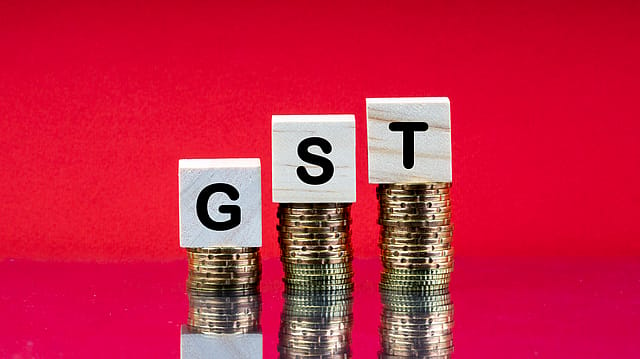GST Council recommendations not binding on Centre, states: SC
ADVERTISEMENT

The Supreme Court on Thursday ruled that recommendations by the Goods and Services Tax (GST) Council are not binding on states or the Centre and hold a persuasive value.
A bench, headed by Justice D.Y. Chandrachud, held that the parliament and state legislatures have simultaneous powers to legislate on Goods and Service Tax (GST).
The GST Council can advise suitably in the event of repugnancy, the apex court says.
"GST Council must work in harmonious manner to achieve workable solution," Justice Chandrachud notes.
The top court, citing Articles 246A and 279A of the Constitution, says that states and the Centre have equal powers to legislate on taxation matters and cannot act independent of each other. The provision highlights competitive federalism, the bench says.
Justice D.Y. Chandrachud says that recommendations of the GST Council are a product of collaborative discussion. "It is not imperative that one of the federal units must always possess a higher share," he says.
The court's judgment came on a plea against the order of Gujarat High Court pertaining to levying tax on ocean freight under the Integrated Goods and Services Tax (IGST) Act, 2017. The high court had quashed a 2017 notification of the government which provided for 5% IGST to be levied on services of transport of goods in a vessel.
Meanwhile, on Wednesday, the group of ministers (GoM) agreed to recommend hiking the GST rate on casino, race course and online gaming services to 28%.
"The group of ministers (GoM) on casinos, race courses and online gaming has come to a consensus," GoM convener and Meghalaya chief minister Conrad K. Sangma tweeted. The report of our submissions will be handed over to finance minister Nirmala Sitharaman in a day or two and the matter will be presented in the next GST Council meeting, he said.
At the time of introduction of GST, the Constitution amendment provided that the Parliament, by law, shall provide compensation to states for a period of five years for loss of revenue due to introduction of GST. Accordingly, the GST Compensation to States Act was legislated which provides for release of compensation against 14% year-on-year growth over revenues in 2015-16 from taxes subsumed in GST. This compensation cess is credited to the compensation fund and as per the Act, all compensation is paid out of the fund. Currently, cess is levied on items like pan masala, tobacco, coal and cars.
GST revenue in the month of April 2022 stood at an all-time high of ₹1,67,540 crore, up 20% from the same month in the previous year. The April revenue is up ₹25,000 crore from the previous record collection of ₹1,42,095 in March this year. The government has extended the GST payment deadline for the month of April till May 24. This was announced after the Central Board of Indirect Taxes and Customs (CBIC) directed Infosys to address technical glitches on the GST portal at the earliest.